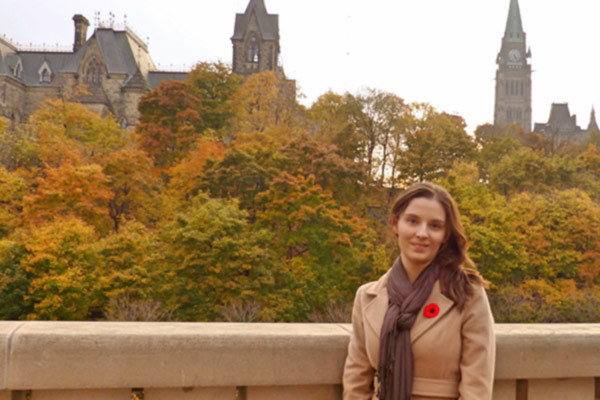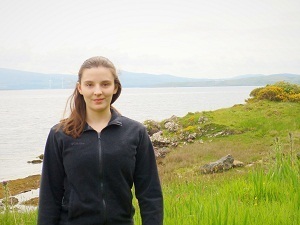
Rachel Banke is new to our Student Spotlight today! A doctoral student in the department of History, Rachel received a Graduate Travel and Research Grant to conduct research in the United Kingdom for her dissertation, which will be a political study of how the British government defined and imagined its empire in the years after the Seven Years' War. She recently wrote to us about her summer:
I would like to extend my sincerest gratitude to the Nanovic Institute for the opportunity to undertake the bulk of my dissertation research this summer. The archival material I gathered this summer is essential to my project tracing the vision for the British Empire that the 3rd Earl of Bute and his network tried to implement following the Seven Years’ War (1756-63). The archival documents I read this summer provide critical evidence for the origins and development of Butite policy that is unavailable in printed sources from the period.
I spent most of my time in London doing research at the National Archives and British Library. I waded through a vast array of papers relating to this period: private letters, official instructions from the Board of Trade, accounts of the national debt, plans for colonial policy, and secret diplomatic correspondence in cypher. I also accessed some of Bute’s papers at the Bodleian Library at Oxford relating to the treasury. I have found that the secondary literature on Bute has over-emphasized his financial acumen and uncompromising focus on reducing Britain’s debt. Instead, I found that Bute and the men surrounding him approached changes to the fiscal policy indecisively and slowly. They thought that structural changes following the war would improve the nation’s finances. Unlike the administrations that would succeed them, they focused less on debt reduction through taxation.
In Edinburgh, I continued my research from last summer at the National Register of Scotland and also accessed some new collections of interest at the National Library of Scotland and the Centre for Research Collections at the University of Edinburgh. In these archives, I worked to extend my research deeper into the network of Bute’s friends and clients who received his patronage. These documents are critical for putting Bute’s thought in conversation with those around him and tracing the implementation of colonial policy through lower levels of government.
Nanovic support also made it possible for me to access the underutilized private collection of the 3rd Earl of Bute’s papers held at the family estate on the Isle of Bute. The first challenge of using these archives is the remoteness of the Mount Stuart estate on an island on the Highland boundary accessible only by ferry crossing. In addition, information regarding the content of these archives is not available except through direct inquiry. In response to my inquiries over the past year, the archive prioritized the cataloguing of material for my period. I was able to work closely with the archivist working on cataloguing the 3rd Earl’s papers, and she helped to point me to some particularly helpful documents I might have missed amidst the vast quantities of material present. While the archives were closed, I had the opportunity to tour the Mount Stuart estate. I was able to see an impressive collection of artwork the 3rd Earl of Bute had amassed and the extensive gardens, to which he contributed significantly.

While I was abroad, I was able to schedule a meeting with a member of my dissertation committee who lives and works in the U.K. Meeting with him face-to-face allowed us the opportunity to discuss my research in more detail than we had previously been afforded. He helped me to refine my thinking about my project and offered me help in using some of the more difficult sources I had come across during the course of my research.
I come into my fourth year of my PhD program ready to begin writing my dissertation this fall, putting me on schedule to finish my program on time. I hope that as I enter the job market, such extensive use of European archives will set me apart from other candidates working on colonial history. The conclusions of my research rely on tracing colonial policy at all levels, from the interactions ordinary subjects had with local officials up to the conversations in King’s private chambers.